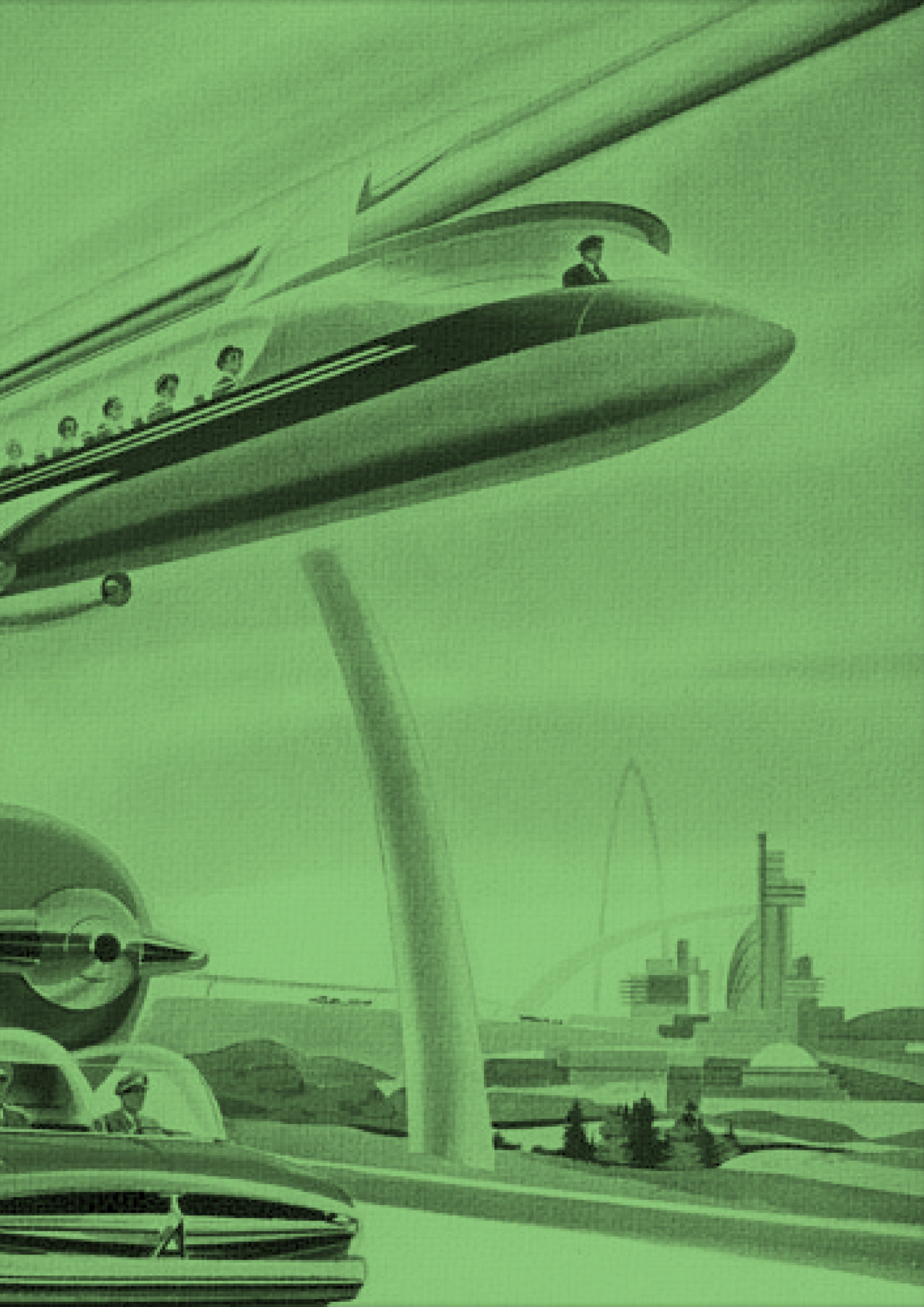The Airport is an unpublished short story by Jean-Marc Ligny, which he wrote in resonance with the programming FUTURS D’AVANT, proposed by Livia Benedetti and Marcela Vieira for the virtual space of the Jeu de Paume. This airport, or at least what remains of it, is no more than a shell lost in the stifling heat of the desert. The protagnist, a former pilot, will try to escape from it, for a journey into the unknown. Technology has given way to DIY and weaving, as if the future feeds on the past…
Airport
Standing in front of the window of the boarding hall, he surveyed the deserted tarmac. The concrete shimmered in the heat, which was already intense even though it was early morning. The torrid wind kicked up swirls of sand and swept tumbleweed across what used to be lawns, expanses of cracked earth scattered with mildew. They were the only signs of movement that the man could detect on this plain engulfed in sun. But there was another, slower one, invisible to the naked eye: the advancing dunes, which were gradually invading the runways.
Leaning across the chrome guardrail towards the window, he could make out the three planes that had been stranded there for ages: a Boeing 787 and an Airbus A330 in parking areas, and a small Iranian An-140 Faraz in front of a maintenance hangar – now his hangar. Their colours were washed out and the logos of the airlines that used them were disappearing under a thick layer of ochre dust. Seen from afar, they looked as though they needed nothing more than a thorough clean, but he knew, having explored them many times before, that they were simply rusting shells that had been plundered and ransacked, and now served as shelters for snakes, gerbils and scorpions. Their punctured tyres and demolished cockpits pained him, and the wind ululating in their inert pipes sounded like agonising groans.
He had flown the Faraz. It was the last plane to land here. It had been just a technical stopover because one of the turboprops was playing up. That was twenty years ago.
As he looked at these depressing vestiges, he wondered whether he was the last pilot still alive. To begin with, he had thought of repairing his Faraz, but Antonov, the Ukrainian mother company, no longer supplied spare parts; then they stopped answering the phone. Finally, the phone itself went dead. And anyway, fuel had become too scarce, expensive and poor in quality. And where could he go anyway? Its range of two thousand kilometres was not enough to reach a secure airport – even if one still existed.
He had other projects now – or one other project, at least. It was waiting for him down there in the hangar. Indeed, he had to go to it quickly, before the heat became too intense to work outside.
The pilot did not know why he sometimes came back to this terminal. Was he hoping by some miracle to hear a flight being announced? Did he enjoy wallowing in nostalgia for a bygone time? Was he waiting for the desert jinns to appear? Or the ghosts of his last passengers? Only the sound of his own footsteps echoed in the vast halls with their fake marble flooring; the blank screens merely showing his own reflection, that of a dishevelled, emaciated man in shapeless rags; no spectre roamed behind the long rows of counters and the control points. The abandoned airport remained frozen in its absolute stoniness.
[…]
Born in 1956 in Paris, Jean-Marc Ligny is a French writer of science fiction and fantasy literature. He published his first short story in 1978 in the anthology Futurs au present editied by Philippe Curval. Temps blancs, his first novel, appeared the following year. Since then, Jean-Marc Ligny has written around forty novels – including ten for young people.
He received the “Grand Prix de l’Imaginaire” for Inner City in 1997, the “Prix Rosny Aîné” for Jihad in 1999. He also received numerous awards for his novel Aqua™, published in 2006 ; it describes the struggle of a small African country against a multinational for the possession of the most precious resource : water, in a context of global warming. In 2012, his novel Exodes takes up the theme of global warming by pushing it to its extreme. It was awarded the European prize at the 2013 Utopiales.


